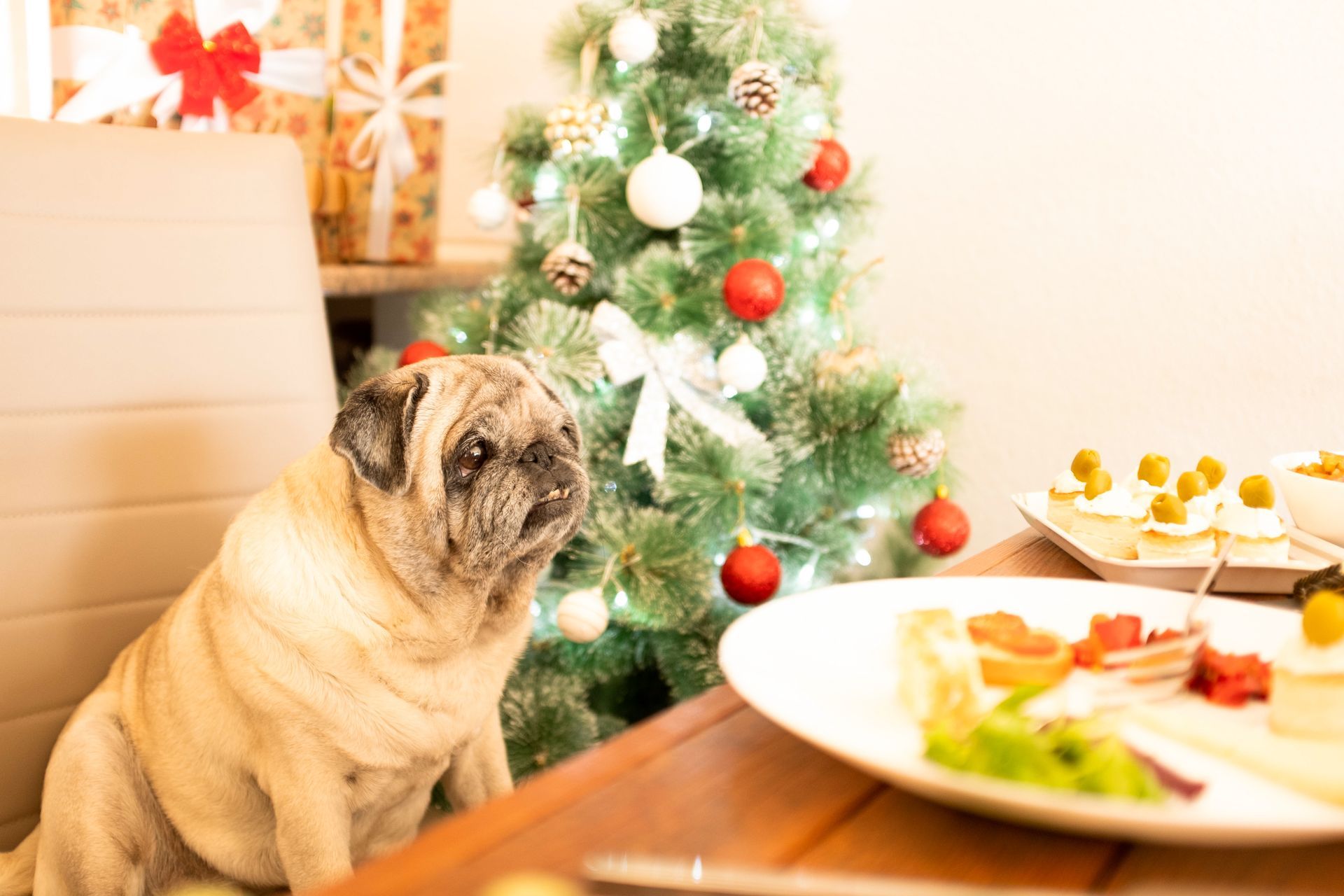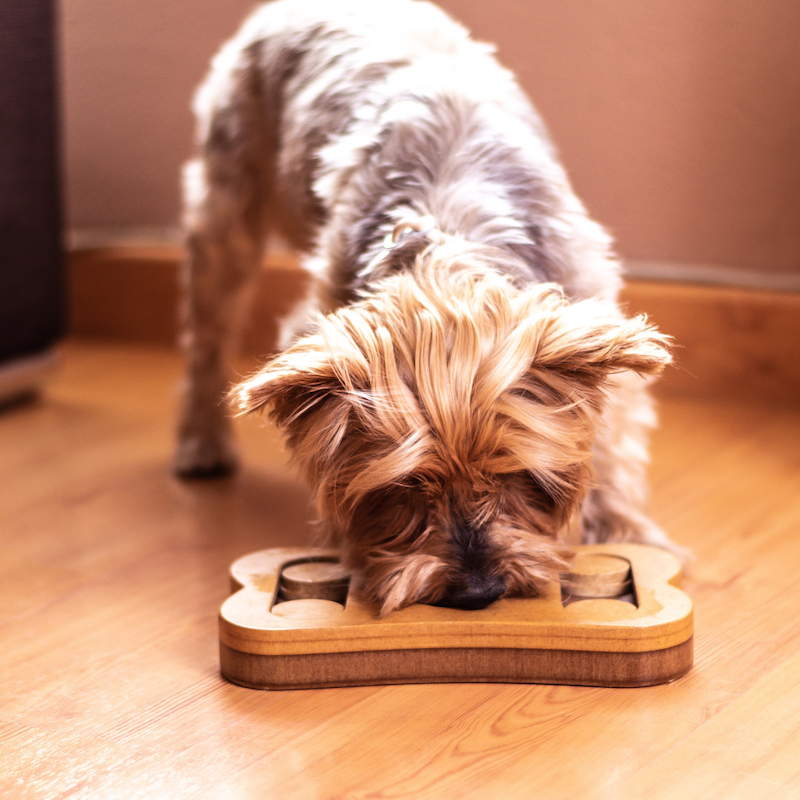Foods to Avoid for Dogs at Christmas: Keep Your Furry Friend Safe This Festive Season
Christmas is a time for treats and big family meals, but many holiday foods can be dangerous for our pets. Here’s a guide to the foods you should keep away from your dog during the festive season, so you can ensure their Christmas is merry—and safe!

1. Chocolate
Chocolate is one of the most common holiday hazards for dogs. It contains theobromine and caffeine, both of which are toxic to dogs, particularly dark chocolate or cocoa powder. Even small amounts can cause symptoms like vomiting, diarrhea, tremors, and in severe cases, seizures.
2. Grapes, Raisins, and Currants
These fruits may be in Christmas pudding, fruitcakes, and mince pies, but they are incredibly toxic to dogs. Even a small amount can cause kidney failure, which is life-threatening. Symptoms to watch for include vomiting, lethargy, and decreased appetite.
3. Onions, Garlic, and Leeks
These vegetables contain compounds that can damage a dog's red blood cells, leading to anaemia. They’re often used in holiday stuffings, gravies, and casseroles, so be cautious when sharing scraps with your dog.
4. Fatty Foods and Turkey Skin
Turkey is a festive staple, but turkey skin, gravy, and other high-fat trimmings can cause pancreatitis in dogs. Pancreatitis is a painful and potentially dangerous inflammation of the pancreas, which can cause vomiting, abdominal pain, and lethargy.
5. Bones
While it may seem natural to give a dog a bone, cooked bones can splinter easily and pose a choking hazard or even cause internal injuries. Turkey, chicken, and ham bones are particularly dangerous.
6. Xylitol (Artificial Sweetener)
Xylitol is found in sugar-free gum, some candies, and even some baked goods. This sweetener is highly toxic to dogs, causing a rapid release of insulin that can lead to hypoglycemia (low blood sugar) and, in severe cases, liver failure.
7. Alcohol
Alcoholic drinks and foods containing alcohol are dangerous for dogs. Even small amounts can cause alcohol poisoning, leading to disorientation, vomiting, breathing difficulties, and even coma.
8. Nutmeg and Other Spices
Nutmeg contains a compound called myristicin, which can be toxic to dogs. It may cause tremors, seizures, and central nervous system issues. Cinnamon, while not as dangerous as nutmeg, can also irritate your dog’s digestive system.
9. Macadamia Nuts
Macadamia nuts are toxic to dogs and can cause symptoms such as vomiting, weakness, tremors, and hyperthermia. These nuts may be found in festive cookies, snacks, or mixed nut assortments.
10. Dough and Yeast
Raw dough containing yeast can expand in a dog’s stomach, potentially causing severe bloating and discomfort. Additionally, yeast ferments, producing alcohol, which is toxic to dogs.
What to Give Instead: Safe Treat Ideas
To make your dog feel part of the celebration, offer them pet-safe holiday treats. You can find dog-friendly treats at most pet stores, or make simple snacks like carrots, green beans, or small amounts of unseasoned, cooked sweet potato.
Emergency Action
If your dog does consume something toxic, it’s essential to act quickly. Contact your veterinarian or an emergency pet clinic immediately, even if symptoms aren’t yet visible. Early intervention is often critical to a successful outcome.
By being cautious about what holiday treats are within your dog’s reach, you can prevent a festive mishap and ensure your pet stays healthy. Keep in mind that while sharing food with your dog can be tempting, it’s best to stick to pet-safe options to avoid any risks.
Happy Holidays to you and your furry family members!





